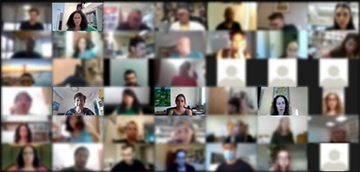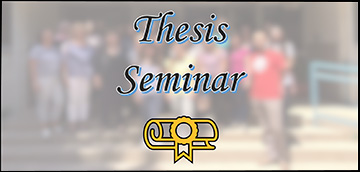The purpose of the course is to improve interpersonal (soft) skills, such as written and oral communication, providing meaningful feedback, presenting to a diverse audience, self-evaluation and peer evaluation.
The course format is based on research findings that showed that interpersonal skills developed but little during the studies at the Technion.
Also, from a study that accompanied a graduate and postgraduate course, it emerged that these skills can be developed through active learning and experiences. Interpersonal skills have been defined as very essential by leading organizations of engineers and scientists in the world and the Forum for Engineering Education at the Samuel Neaman Institute for National Policy Research.
The course is intended for all graduate students at the Technion who are engaged in research and it is an opportunity to expose them to researches from a variety of faculties.
At the end of the course, the students will be able to:
1. Present themselves orally to a diverse audience in a short (ELEVATOR PITCH) or long presentation.
2. Present their research in writing to a diverse audience, while providing an accessible explanation of the topic and goals of the research.
3. Give and receive feedback in a positive and constructive manner.
4. Evaluate themselves and their colleagues.
5. Improve the metacognitive abilities related to their research.
6. Be exposed to a variety of research at the Technion that may promote interdisciplinary collaborations.
7. Present themselves face-to-face and online (ZOOM).

The course serves as a forum for critical and constructive discussion of research work for Master’s or Doctor’s degrees in the Faculty of Education in Science and Technology.
In every week assigned students present their research. Classmates submit a written report about each presented work/abstract with their comments, before the lesson. This report includes suggestions for improving the work/abstract, addressing theoretical (crucial for Doctoral Thesis), practical (crucial for Master’s Thesis), and methodological contributions. A class discussion takes place based on a preliminary critical reading of every students’ work/abstract.
Discussion may concern the following stages of research:
A. Preparing the research proposal
B. Performing the pilot study
C. Preform the main study
D. Data analysis
E. Summarizing findings
F. Submitting research work to an international conference
G. Submitting an article to an international journal
H. Writing the research thesis
The seminar provides a unique opportunity for academic mentoring and for answering questions concerning research. Also, in the seminar we practice the ability to receive and provide proactive feedback to colleagues, as well as feedback on feedback.
